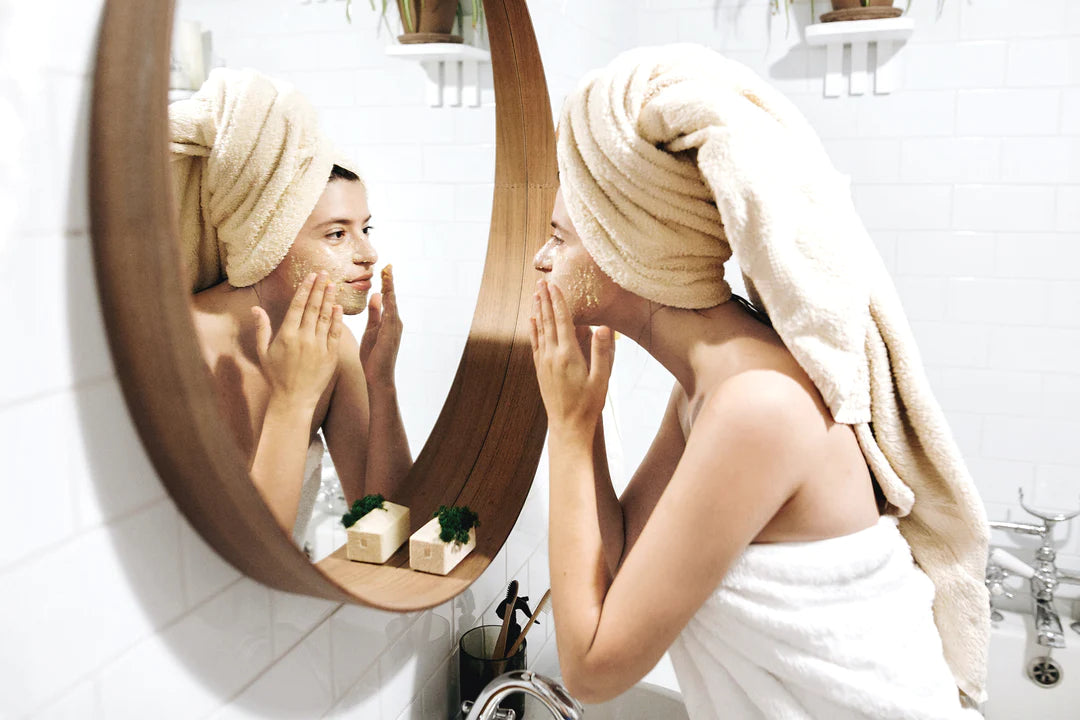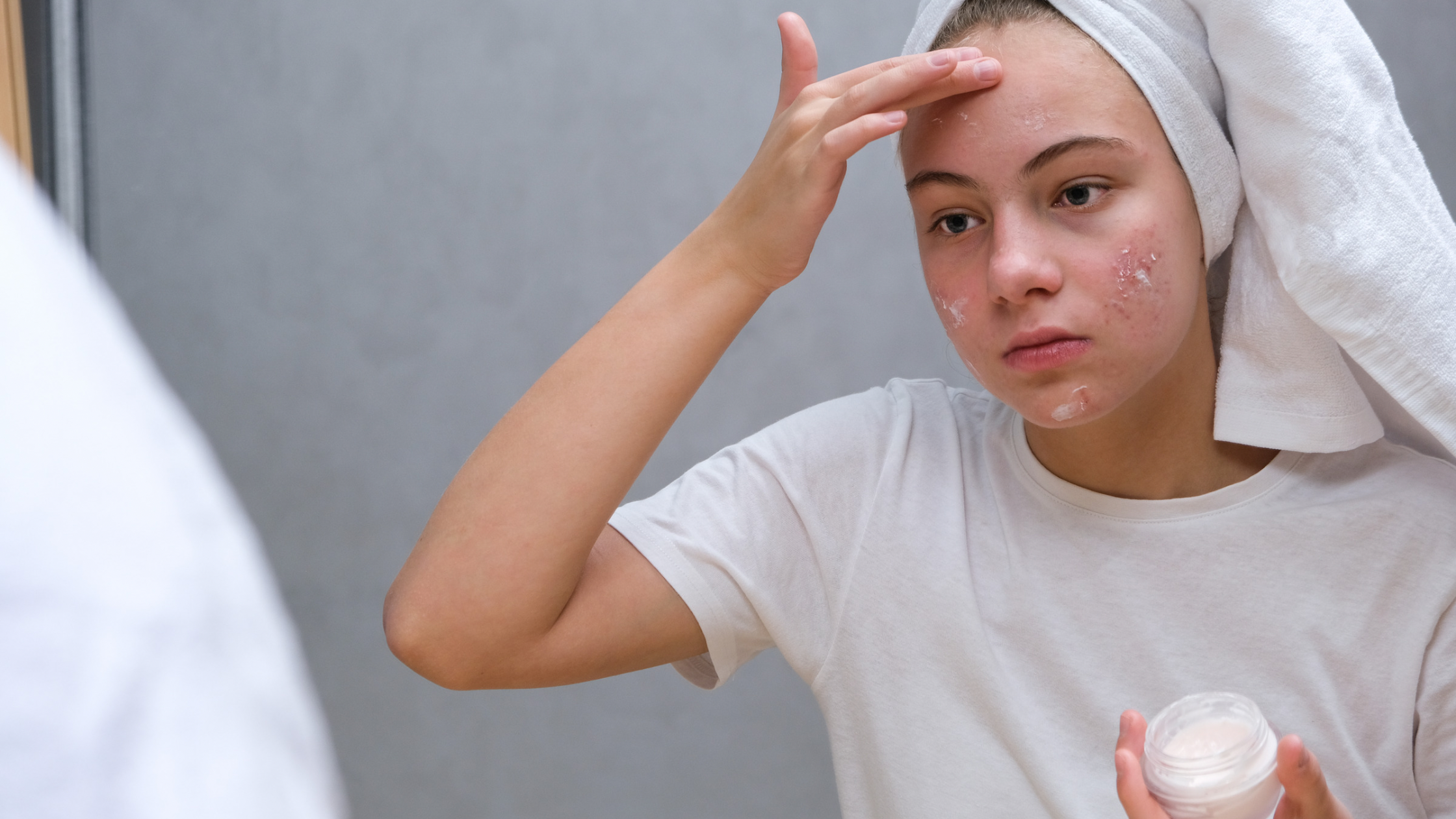
Does Vitamin C Help Acne
Beyond its anti-aging properties, vitamin C serum can be a valuable ally in the battle against acne. Thanks to its anti-inflammatory properties, vitamin C helps soothe irritated skin and reduce redness associated with acne lesions. Furthermore, its ability to promote skin healing can aid in minimizing acne scars, contributing to a smoother complexion. Incorporating vitamin C serum into your skincare routine may prove beneficial for those grappling with acne-related concerns.
Does Vitamin C Help Acne?
Vitamin C can indeed help with acne due to its antioxidant properties and its ability to promote skin health. Here's how:
- Antioxidant Effects: Vitamin C is a potent antioxidant that helps neutralize free radicals, which can damage the skin and contribute to acne formation. By reducing oxidative stress, vitamin C can help prevent inflammation and support overall skin health.
- Promotes Collagen Production: Vitamin C plays a crucial role in collagen synthesis, which is essential for maintaining the skin's structural integrity and resilience. By promoting collagen production, vitamin C can help improve the healing process of acne lesions and reduce the risk of scarring.
- Reduces Inflammation: Vitamin C has anti-inflammatory properties that can help calm redness and swelling associated with acne breakouts. By reducing inflammation, vitamin C can alleviate discomfort and promote faster healing of acne-prone skin.
- Lightens Post-Acne Marks: Vitamin C has skin-brightening properties that can help fade post-inflammatory hyperpigmentation (PIH) or dark spots left behind by acne lesions. Regular use of vitamin C can promote a more even skin tone and reduce the visibility of acne scars.
- Regulates Sebum Production: Some research suggests that vitamin C may help regulate sebum production, the skin's natural oil. By balancing sebum levels, vitamin C can help prevent clogged pores and reduce the risk of new acne breakouts.
Overall, incorporating vitamin C into your skincare routine can be beneficial for acne-prone skin. However, it's essential to choose the right formulation and concentration of vitamin C, as well as to use it consistently to see optimal results.
Should You Use Vitamin C If You Have Acne?
Vitamin C serum acts as a powerhouse for facial skin. It brightens and tightens, promoting a youthful glow by reducing the appearance of fine lines and wrinkles. The serum's antioxidant properties protect the skin from environmental damage, leaving it looking refreshed and revitalized.
When incorporating a vitamin C serum into your skincare routine, it's important to apply it to clean, dry skin and follow up with a moisturizer and sunscreen during the day. Regular and consistent use can maximize the benefits of vitamin C for your face.
Which Vitamin C is Best for Acne Skin?
The optimal percentage of vitamin C serum depends on individual skin sensitivity. Beginners may find success with concentrations around 10-15%, while experienced users might benefit from higher concentrations, of up to 20%. Using vitamin C serum daily is generally safe and encouraged for optimal results. The consistency of daily use helps maintain a steady supply of antioxidants, offering continuous protection against free radicals.
What to Do Next? Try Averr Aglow’s Clear Skin Kit
Tired of feeling lost and confused about what you should do to get clear, smooth skin? Order the Clear Skin Kit.
The Clear Skin Kit contains products specially crafted with the perfect blend of natural ingredients that help soothe and calm red, irritated skin while also clearing up breakouts. If you struggle with sensitive acne/breakout-prone skin, hormonal acne, cystic acne, or rosacea, then you’ll be happy you found this complete routine.
Please understand, that results may vary, we’re not selling you a miracle product and would never try to position or state that you will get a true result in only a few days. In our clinical trials, most users found the most results at the 30-day and then the 56-day mark by sticking with our routine.
What is Averr Aglow®?
Averr means Truth. We have pioneered a revolutionary no-rinse cleansing routine specifically tailored to address problematic skin issues.
Hi, I’m Camille, founder of Averr Aglow, and I help adult women who are battling breakouts and acne get clear skin results like they have never seen before, even if nothing has worked for them in the past.
After battling breakouts for over 16 years, trying every skincare product under the sun, and visiting countless professionals like dermatologists, nutritionists, and hormonal doctors, I finally learned why nothing seemed to work on clearing up my skin, what truly causes breakouts and acne, and EXACTLY what to do to get clear skin results – and I want to help you do the same.
Let me help you! Read my full testimonial here.






